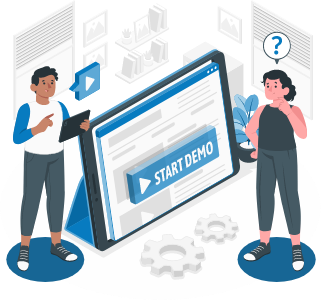As consumer preferences shift towards healthier, mineral-rich beverages, and sustainability is taking centre stage, bottled water manufacturers are under great pressure to deliver quality, efficiency, and compliance. The ERP for bottled water manufacturing businesses has evolved into an intelligent command centre that integrates IoT sensors, AI-driven analytics, and real-time supply chain visibility.
This blog examines emerging ERP trends redefining bottled water manufacturing, including advanced quality control, predictive maintenance, and sustainable production tracking.
What is a bottled water ERP system? – A bottled water ERP (Enterprise Resource Planning) system is a comprehensive platform that offers multiple bottled water business management applications to integrate your business operations, from procurement and bottling to quality control and distribution. Water Delivery Solutions provides an ERP system that streamlines and optimizes your business processes, improving productivity and profitability.
The future trends in ERP for the bottled water manufacturing businesses
The future trends in the bottled water industry heavily rely on sustainability and technological advancements. Imagine we are in 2030 and bottled water manufacturing plants are running like intelligent ecosystems. ERP systems communicate with IoT sensors, and AI predicts quality issues before they occur, as well as provides real-time updates on sustainability data. Here are the major advancements and trends in bottled water manufacturing.
Sustainability-focused ERP systems to address environmental concerns
Sustainability in bottled water manufacturing is shifting from being a “good-to-have” branding element to a core operational requirement. With stricter environmental movements against regulations, growing consumer demands for eco-friendly products, and global movements against plastic pollution, bottled water manufacturers are increasingly relying on ERP systems with a focus on sustainability. Features of ERP that support sustainable bottled water manufacturing are:
Real-time resource tracking – With IoT-enabled meter and sensor integrations with ERP, enable monitoring water usage, energy consumption, and raw material efficiency in real time. This will allow manufacturers to identify wastage points instantly, whether it is excess water in rinsing processes or unnecessary energy usage during bottle sterilization, and take corrective actions.
Carbon footprint monitoring – ERP systems can track greenhouse gas emissions across production stages, transportation, and supply chain activities. It can consolidate data from production equipment, delivery vehicles, and packaging vendors to provide a view of their carbon footprint. This makes it easier to comply with ESG (Environmental, Social, and Governance) reporting standards.
Sustainable packaging material – The system will assist manufacturers in managing packaging materials that are biodegradable, recyclable, or made of less
plastic. It will track your supplier compliance and measure the environmental impact of each packaging choice. The ERP systems will also use AI to suggest optimal packaging options based on cost, durability, and sustainability scores.
Waste reduction through predictive analysis – ERP will utilize Artificial Intelligence and Machine Learning to forecast accurate demand fluctuations,
minimizing expired stock in warehouses. They will also optimize batch sizes and production schedules to ensure minimal raw material wastage.
Circular economy integration – Future ERP tools will support closed-loop operations, including tracking reusable bottles, managing bottle return programs, and integrating with recycling partners to ensure active participation in a circular economy.
Compliance and certification management – The sustainability-focused ERP systems will maintain a detailed record of environmental certifications, recycling compliance documents, and waste management reports, making audits and regulatory inspections smoother and faster.
Personalized experience with AI-powered CRM for improved engagement
The bottled water manufacturers will not only compete on product quality, but they’ll also compete on how well they understand and engage their customers. Whether you are selling to retail chains, office clients, or directly to consumers via subscription models, personalization will make a key difference. ERP systems integrated with advanced customer relationship management tools will make this possible at scale. The features of CRM in ERP for personalized customer experience are:
- Complete customer profiles – Integrating CRM within ERP will consolidate data from orders, payment history, delivery preferences, feedback forms, and even social media interactions into a single customer profile. This unified view enables sales and service teams to tailor recommendations, offer relevant promotions, and resolve issues quickly.
- AI-driven personalization – The future CRM-ERP systems will use AI and machine learning to analyze buying patterns, seasonal consumption habits, and preferred packaging types. For instance:
Suggesting mineral-rich variants to health-conscious customers.
Offering bulk discounts to offices with high monthly consumption.
Sending reminders for subscription renewals before customers run out of stock.
- Proactive customer service – Integrated CRM tools will trigger for service teams when a pattern suggests a potential drop in engagement, such as reduced order frequency or delayed payments. This enables proactive retention strategies, like personalized offers, loyalty rewards, or check-in calls.
- Seamless omnichannel experience – Whether a customer orders via a mobile app, website, or a sales representative, ERP-integrated CRM will ensure their preferences and history are instantly available. This assures consistent and frictionless interaction across all touchpoints.
- Real-time feedback integration – Customer feedback from deliveries or digital platforms will flow directly into the ERP-CRM platform, enabling instant actions on complaints, packaging improvements, or delivery scheduling adjustments. This creates a closed-loop feedback process, boosting customer satisfaction and trust.
- Loyalty and retention strategies – The AI-powered ERP-CRM system automates loyalty programs and tracks reward options based on past purchases. This makes retention strategies data-driven rather than guesswork.
Product upselling management in ERP for bottled water manufacturing
Manufacturers in the bottled water industry are looking to maximize the value of every customer transaction. Product upselling includes offering complementary or premium products alongside a customer’s original purchase. The ERP system will have in-built upselling management features that use data intelligence to recommend the right product to the right customers. Features of ERP that will support product upselling management:
- AI-powered recommendation engines – ERP platforms will integrate AI algorithms to analyze purchasing patterns, seasonal trends, and customer profiles. For example:
Suggesting a premium mineral water variant to customers who regularly buy standard bottled water.
Offering a package deal with flavored water or electrolyte-infused water to fitness-focused buyers. - Integrated sales and CRM insights – The system can detect cross-selling opportunities based on a customer’s order history and preferences, ensuring upselling suggestions feel relevant and not random, boosting acceptance rates.
- Automated promotions and bundling – ERP systems will automate promotional campaigns for upselling, such as “buy 2 crates, get the third crate of flavored water at 20% off.” When placing an order through a website, mobile app, or in-person sales visit, these can be set to start automatically.
- Real-time inventory sync – The future ERP system will link upselling suggestions directly to live inventory data, ensuring customers see only available items and avoiding the frustration of backorders.
- Seamless integrations with subscription models – ERP system can suggest volume upgrades, premium water types, or accessories (such as reusable dispensers) during subscription renewals, increasing lifetime customer value.
- Data-driven revenue tracking – ERP dashboards will enable managers to track average order value (AOV) growth, revenue generated from upselling campaigns, and the success rate of different upsell offers, making it easy to fine-tune strategies.
ERP-driven quality control for healthy water and mineral-based beverages
Purity, nutritional accuracy, and regulatory compliance have become essential in bottled water manufacturing as health-conscious consumers seek mineral-rich, vitamin-infused, and functional water products. When scaling up production, advanced quality control capabilities will be required to ensure consistent product standards. These ERP capabilities support advanced quality control, including:
- Real-time quality monitoring – The future ERP system will be directly connected to IoT-enabled sensors in the filtration unit, bottling lines, and storage tanks. These sensors will track pH levels, mineral composition, temperature, and contamination risks in real-time, identifying variations before they affect the entire batch.
- Batch traceability – As product variety increases, from alkaline water to magnesium-enriched drinks, ERP-driven traceability can log every detail of production, including source water lot numbers, filtration stages, mineral additive batches, and packaging IDs. This enables manufacturers to execute targeted recalls in minutes, without having to recall an entire product line.
- Automated compliance management – The beverage industry is subject to strict food and labelling regulations. ERP systems will automate documentation for HACCP, ISO 22000, FDA, or BIS standards, ensuring faster and accurate audits. They will also monitor the level of accuracy for nutrient content claims.
- AI-based defect prediction – Machine Learning models within ERP platforms can analyze historical QC data to predict potential failures before they occur. This may include identifying patterns in mineral inconsistencies or temperature fluctuations during transport that could impact shelf life.
- Multi-stage quality gates – Future ERP systems will enforce quality checkpoints at multiple stages, from raw water intake to post-bottling inspection, preventing substandard products from moving to the next step in production.
- Integration with supplier quality data – The bottled water ERP systems can integrate supplier performance records, tracking raw material quality, delivery consistency, and compliance scores, ensuring only trusted sources contribute to the final product.
IoT-enabled ERP for equipment performance & predictive maintenance
IoT sensors will become integral to ERP for bottled water manufacturing, turning production equipment into data-generating assets that can self-report their health, performance, and maintenance needs. This shift prevents costly downtime and enables manufacturers to optimize production schedules and resource allocation. Features of the IoT sensors integrated ERP system for predictive maintenance are:
- Real-time equipment performance monitoring – The IoT sensors are installed on bottling lines, filtration units, pumps, and compressors. They continuously feed operational data, such as speed, vibration, temperature, and pressure, into the ERP system. Production managers will get instant alerts if a machine is running outside its optimal range, enabling quick intervention before small issues escalate.
- Predictive maintenance – Instead of following fixed maintenance schedules, ERP systems will use IoT data and machine learning algorithms to predict when a component is likely to fail. Example: Unusual vibration patterns in a bottling motor could trigger a maintenance request before the parts wear out completely, reducing unplanned downtime.
- Production schedule optimization – ERP systems can dynamically adjust production schedules based on orders, raw material availability, equipment capacity, and labor. If a filling machine is operating below capacity, workloads can be shifted to another line to meet deadlines without overburdening a single machine. During maintenance windows, production can be rescheduled automatically to avoid disruptions.
- Energy efficiency tracking – IoT sensors can also track energy usage per machine, per shift. AI-powered ERP analytics can identify which equipment consumes the most power and suggest operational changes or upgrades to reduce energy costs and carbon footprint.
AI-powered IoT for raw material lots tracking & automated purchasing
The bottled water manufacturing is evolving towards greater transparency, precision, and operational efficiency, utilizing ERP-integrated AI-powered IoT devices for raw material management. This trend will enable manufacturers to track every lot of raw materials, from water sources to packing supplies, while automating replenishment processes to avoid shortage or excess stock. The features of AI-powered IoT devices integrated with ERP for end-to-end traceability are:
- End-to-end raw material lot tracking – IoT-enabled sensors and RFID/barcode scanners can capture real-time location and condition data for every lot of raw material, including water sourced from specific springs or plants, mineral additives used for functional beverages, and packaging materials (bottles, caps, and labels). The ERP system will log each lot’s origin, supplier, quality certifications, and storage conditions, enabling instant traceability in case of quality issues or recalls.
- AI-driven anomaly detection – AI algorithms will continuously analyze incoming IoT data to detect irregularities. Example:
If a mineral additive shipment shows temperature fluctuations during transit, the ERP system can flag it for quality inspection before use
If a supplier consistently delivers material close to its expiry, AI can recommend switching vendors.
- Automated purchase orders (POs) – Monitoring consumption rates in real-time with an advanced ERP can predict when each raw material lot will run out and automatically trigger purchase orders to approved suppliers. This helps eliminate manual procurement delays and prioritize orders based on lead time, costs, and supplier performance history.
- Optimized inventory levels – AI-powered forecasting can factor in production schedules, seasonal demand trends, and supplier delivery time, helping prevent overstocking and stockouts. This ensures that material arrives just in time for production without sitting idle in storage.
- Compliance & sustainability tracking – Lot tracking using AI-powered IoTs ensures compliance with food and beverage regulations and sustainability goals by keeping accurate records of source origins, eco-certifications, and waste generated during raw material handling.
- Rapid recall management – In the event of a defect or contamination, ERP systems can instantly determine which finished goods contain a specific raw material lot and where those products were distributed, allowing for quick, targeted recalls rather than expensive blanket recalls.
Blockchain-integrated ERP for end-to-end traceability & efficient recalls.
Bottled water manufacturing may face even stricter regulatory requirements in the future, as consumers demand more information about the water source, its processing, and drinking safety. Integrating blockchain technology will create an immutable, tamper-proof record of every step in production and supply chain, enabling manufacturers to act quickly during recalls and dramatically reduce waste. Ways blockchain-integrated ERP for end-to-end traceability are:
- Immutable, transparent data records – Blockchain will store permanent records of production events, including water source details, filtration, and mineralization steps, packaging lot numbers, and transport conditions. Once recorded, this data can not be altered, ensuring trust and authenticity for audits, regulators, and consumers.
- Instant product traceability – With blockchain-enabled ERP, manufacturers can trace a finished bottled water product back to its exact batch and raw material source in seconds. Example: If a contamination issue is detected in one of the lots of mineral additives, the ERP system can instantly identify all affected products and their distribution locations.
- Faster, targeted recalls – Instead of recalling an entire day’s or week’s production, blockchain records allow precise targeting of only the affected units. This approach can minimize product loss, reduce financial losses, and prevent unnecessary damage to brand reputation.
- Real-time supply chain visibility – Every stakeholder, from suppliers to distributors, can securely access relevant blockchain data in the ERP system. This auto-updates data on inventory, quality checks, and delivery timelines in real-time without the risk of data manipulation.
- Integration with IoT and AI – When combined with IoT sensors, blockchain can log real-time environmental conditions, including temperature, pH, and mineral content. AI can analyze this data to detect anomalies early, further reducing the chance of large-scale recalls.
- Regulatory compliance – Blockchain-based ERP creates a ready-to-use digital audit trail for food safety authorities, certification bodies, and ESG compliance, saving time during inspections and eliminating paperwork errors.
Bottom-line
The bottled water industry is now entering an era where transparency, efficiency, and customer experience define market leaders. Implementing the aforementioned trends with ERP now can help you meet rising consumer expectations for healthier, safer, and more eco-friendly products, making your bottled water manufacturing business future-ready. Implementing the Water Delivery Solution ERP software can help you evolve with market standards and make your business ready for future challenges. Schedule a meeting to discuss your business and see how we can help.

He loves to explore. His passion for helping delivery industries in all aspects flows through in the vision he has. In addition to providing smart solution to make delivery process flawless, Ravi also likes to write sometimes to make it easier for people from business industry looking for digital solutions.



